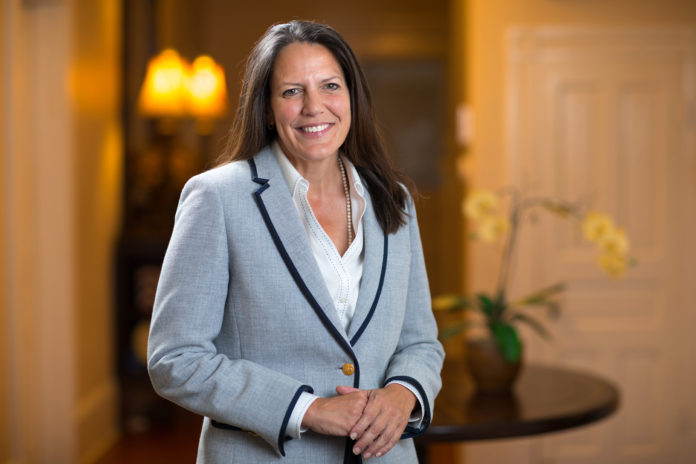With over 20 years of experience in higher education, during which time she served as the first female provost at The Citadel, Constance Ledoux Book has been named the first female president of Elon University, a liberal arts school where she previously served as a faculty member and senior administrator.
Book’s former position of provost made her the highest-ranking female leader at The Citadel, allowing her to bring significant change to the school. Enrollment of African American, female and Latino students reached an all-time high during Book’s time at The Citadel. Book also advanced STEM education and launched new programs in nursing, engineering, cyber security and intelligence security while provost.
Book attended Louisiana State University, where she received her bachelor’s degree in journalism, and she received her masters degree for education administration and supervision from Northwestern State University.
Proconian interviewed Book on her accomplishments and history in the field of journalism and education.
I understand that you worked as a television producer and reporter before getting involved in higher education. What encouraged you to make the switch?
When I went to earn a master’s degree with a focus on documentary television, I was also asked to teach. In teaching that first class, I realized how much I loved sharing about journalism and teaching others to write and to ask good questions. Good questions really contain so much power.
It was that love of teaching sparked by that initial class that made me want to go into higher education.
What real-world experience from working as a reporter helped you while working in higher education? How did your journalism career inform your teaching when you worked as a professor?
The ability to ask questions, assess a situation and then to share it with other people has been invaluable to me as a journalist and as an educator. Someone who is a journalist is also teaching, and that skill set has served me well in higher education.
As a journalist, I often was asking important people tough questions. You have to learn a sense of self-confidence to be in that position. If you have questions, more often than not, other people do too, and you can help a broader audience to better understand the world around them.
Were there any challenges you faced working as the first female provost at The Citadel? If so, what were they?
Absolutely. I think any time you are a first at anything, you face challenges. Those challenges were not unique to the climate of The Citadel, but rather are unique to being a first.
One challenge is that people are watching you. I realized early on at The Citadel that any time I was standing in front of a microphone, any time I was working on an initiative, there would be people who would be guided by my example.
I worked very hard to show up ready. I worked hard to be prepared with good facts and information before I walked into a room so that people would understand that I was prepared.
I learned the responsibility that comes from being in the role of provost, which at The Citadel is second only to the college president. You are being held accountable, and you have to remember to lead from the position that’s been entrusted to you.
What challenges did you face moving from a position in a military school to a liberal arts school?
Before going to The Citadel, I was at Elon for 16 years as a faculty member and administrative leader, so returning as its ninth president was like coming home. Elon and The Citadel are very similar in that they are both residential universities, and they both use leadership as a way to develop young people.
At The Citadel, I learned a different language and a different set of customs and traditions, but there was still that end goal of developing young people.
I noticed in your bio on Elon’s website that your grandparents were Louisiana cotton sharecroppers. Do you see education as a tool that can be transformative generationally?
Absolutely. It is the everyday miracle in the United States – where people can change the course of their future and their family’s future through education. My parents had the opportunity through the G.I. Bill and through Catholic Charities to earn an education that would change the lives of their children. All nine of us have graduated from college.
The first female cadets were admitted to The Citadel in 1996, and you were named the first female provost in 2015. What changes did you perceive regarding women and women’s rights at The Citadel over the course of this time?
Women continue to break new ground at The Citadel, and last week, the first female regimental commander, who is the equivalent of the student body president, was announced there.
The Citadel and the military have realized the importance of women in education and our nation’s defense. Women hold leadership roles at The Citadel and influence decision-making in a unique way. The Citadel recognizes it is strong as an institution, and the military realizes it is stronger as a combat force, because of the thinking of women.
According to your bio, “The Citadel reached record enrollment for African-American, female and Latino first-year students” while you were there. How do you plan to establish similar changes at Elon?
Elon recognizes the importance of a diverse student body and how that helps the university achieve its learning goals. We know that young people will not be successful unless they are engaged with a diverse group of people and exposed to a diversity of ideas.
For the past decade, we have had a stated goal as part of our strategic planning process to work toward diversity, inclusion and global engagement, and each year have advanced. This is important ongoing work. We will not simply be able to check a box and say we are finished, so I anticipate we will have goals associated with these issues in the next strategic plan.
How did having a son graduate from Elon in 2017 influence your choice to become Elon’s president?
When your child goes off to college, you see the collegiate experience from their viewpoint. I have always been very proud of Elon’s residential campus experience and the university’s focus on strong academics. I watched my son make intellectual gains throughout his four years at Elon, and saw him have life-changing experiences and grow as a young man.
I feel enormously proud to have been chosen as Elon’s ninth president. It is the greatest privilege of my professional career to lead this remarkable institution and I really couldn’t have envisioned a better future for myself.












